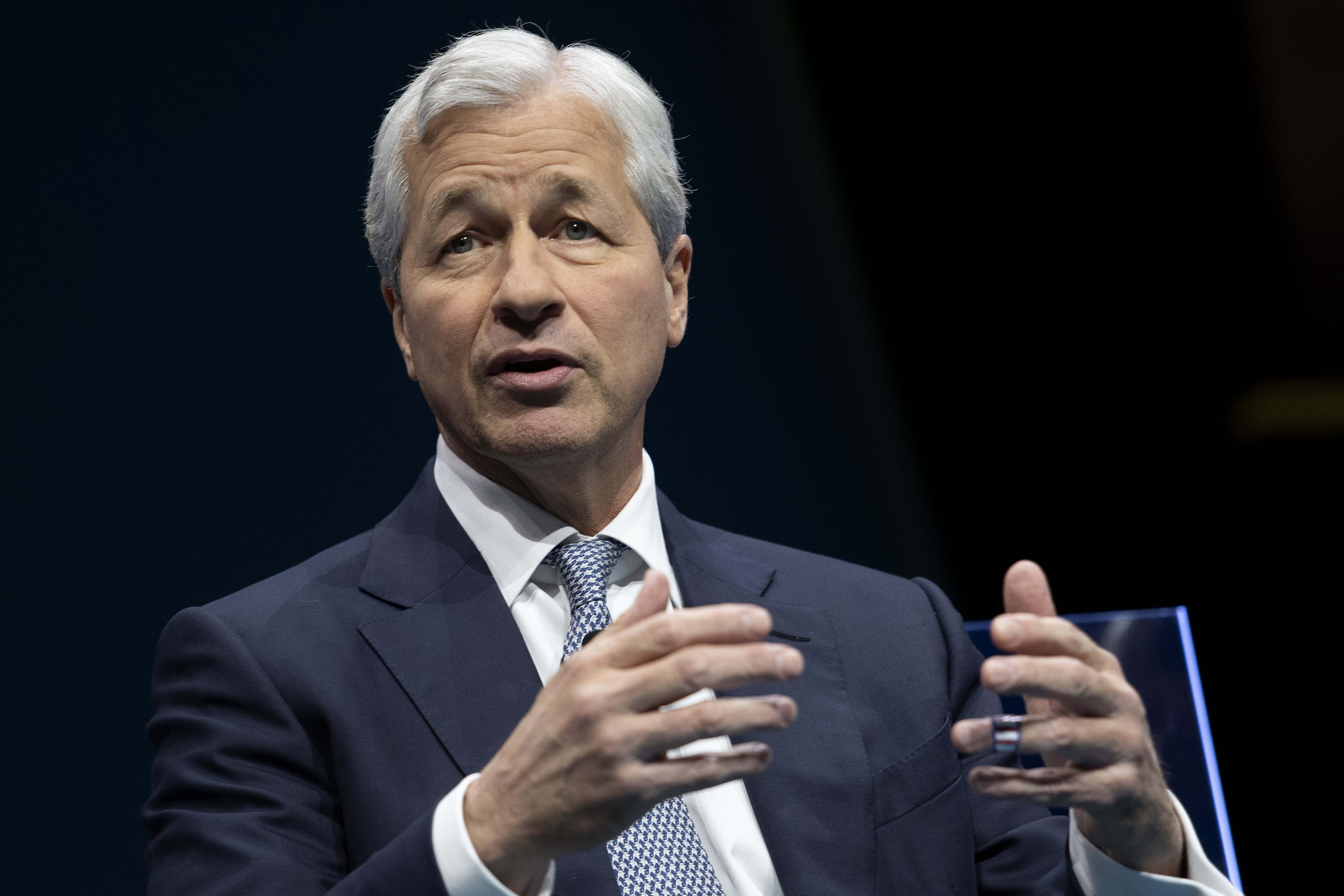US bank execs warn government shutdown adds to economic risks
JPMorgan Chief Executive Jamie Dimon warned that an extended US government shutdown could kill economic growth. (Jim WATSON)
New York (AFP) – Bank executives said Tuesday that economic conditions remained solid, but warned that weakening sentiment amid a lengthening US government shutdown could kill growth.
Uncertainty about the shutdown — now the longest in US history — further dims the outlook at a time when questions about trade wars and Federal Reserve policies also are clouding plans, executives said.
“Some would estimate that if it goes on the whole quarter, it can reduce growth to zero,” said JPMorgan Chief Executive Jamie Dimon as the partial shutdown entered its 24th day.
“The shutdown is not going to help the economy,” Dimon said in a conference call.
“The underlying statistics of the economy globally are not bad,” he said. “There’s clearly a slowdown, particularly in Japan, China and Germany and the US, but there’s still global growth. And the consumers in good shape.”
Dimon’s remarks came as JPMorgan and Wells Fargo reported mixed results for the fourth quarter, following a similar report Monday from Citigroup.
Citigroup Chief Executive Michael Corbat said the company could “make adjustments” to plans if conditions weaken.
He described a “disconnect” between the growth fears that have disrupted financial markets in recent weeks, and the tight labor markets, good consumer confidence and other anecdotal signs of health.
“Right now we see the biggest risk in the global economy is one of talking ourselves into the next recession as opposed to the underlying fundamentals taking us there,” Corbat said.
Net income at JPMorgan surged 67 percent to $7.1 billion, with the year-ago period hit by one-time accounting costs from US tax reform.
Revenues rose four percent to $26.8 billion.
JPMorgan’s earnings got a lift from higher net interest income following four Federal Reserve interest rate hikes last year, with the bank generating higher income from credit cards and auto leases. The bank also notched an increase in overall loans.
But the results translated to $1.98 a share compared with the expected $2.21, a rare miss for the US giant, due in part to increased technology spending and weakness in US Treasury bond trading amid market turbulence at the end of 2018.
JPMorgan also set aside increased funds for bad loans. Chief Financial Officer Marianne Lake described the extra provisions for credit losses as due to “select” loans and not indicative of “systemic problems” with credit.
– Wells Fargo earnings slip –
Wells Fargo reported that fourth-quarter earnings slipped 1.4 percent to $6.1 billion behind a 4.9 percent drop in revenues.
Net interest income rose during the quarter, but the bank saw a drop in overall loans compared with the year-ago period, with declines in consumer loans more than offsetting higher commercial loans.
The results again suggest Wells Fargo is continuing to face residual skepticism from customers following a fake accounts scandal in which the bank opened credit card and other accounts for customers without their knowledge.
Wells Fargo Chief Executive Tim Sloan said he was proud of “transformational changes” at the bank, adding that “we have made meaningful improvements to how we manage risk across the company.”
Shares of JPMorgan fell 1.0 percent early in the day, but then recovered some ground to $100.66, a 0.3 percent dip, around mid-session, while Wells Fargo fell 2.0 percent to $47.45. Citigroup was up 3.7 percent at $61.12.
Disclaimer: This story is published from a syndicated feed. Siliconeer does not assume any liability for the above story. Validity of the above story is for 7 Days from original date of publishing. Content copyright AFP.


